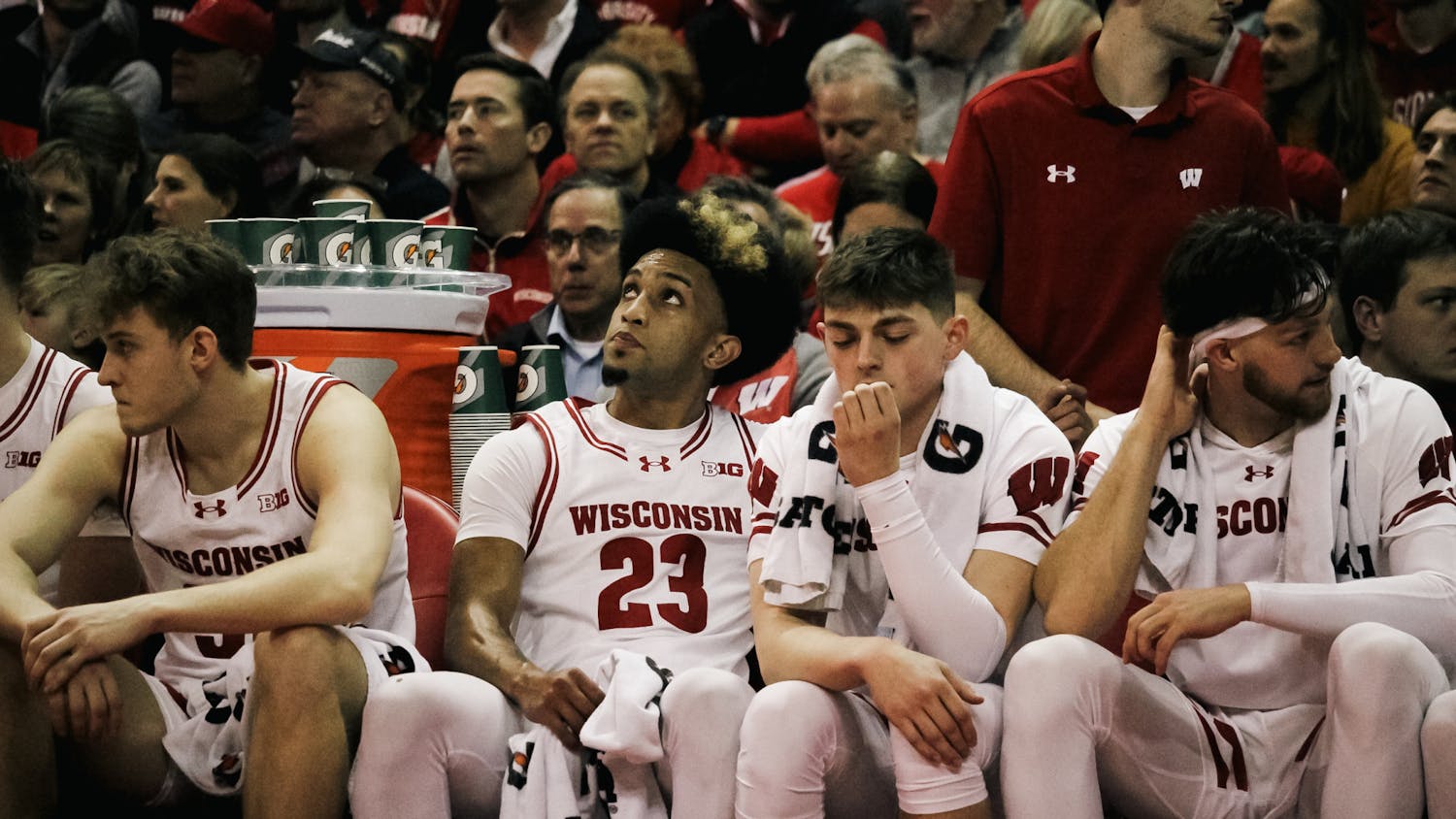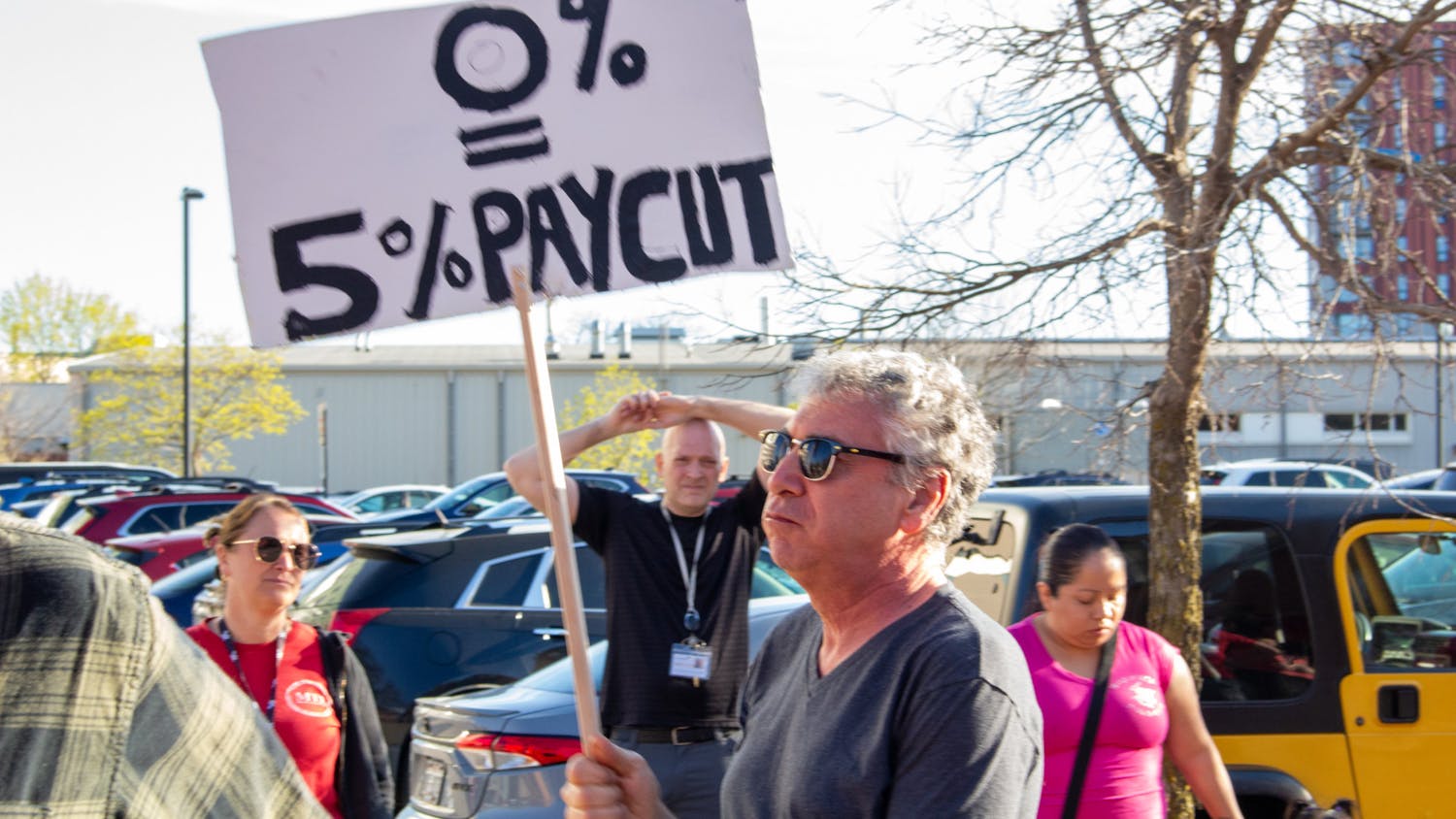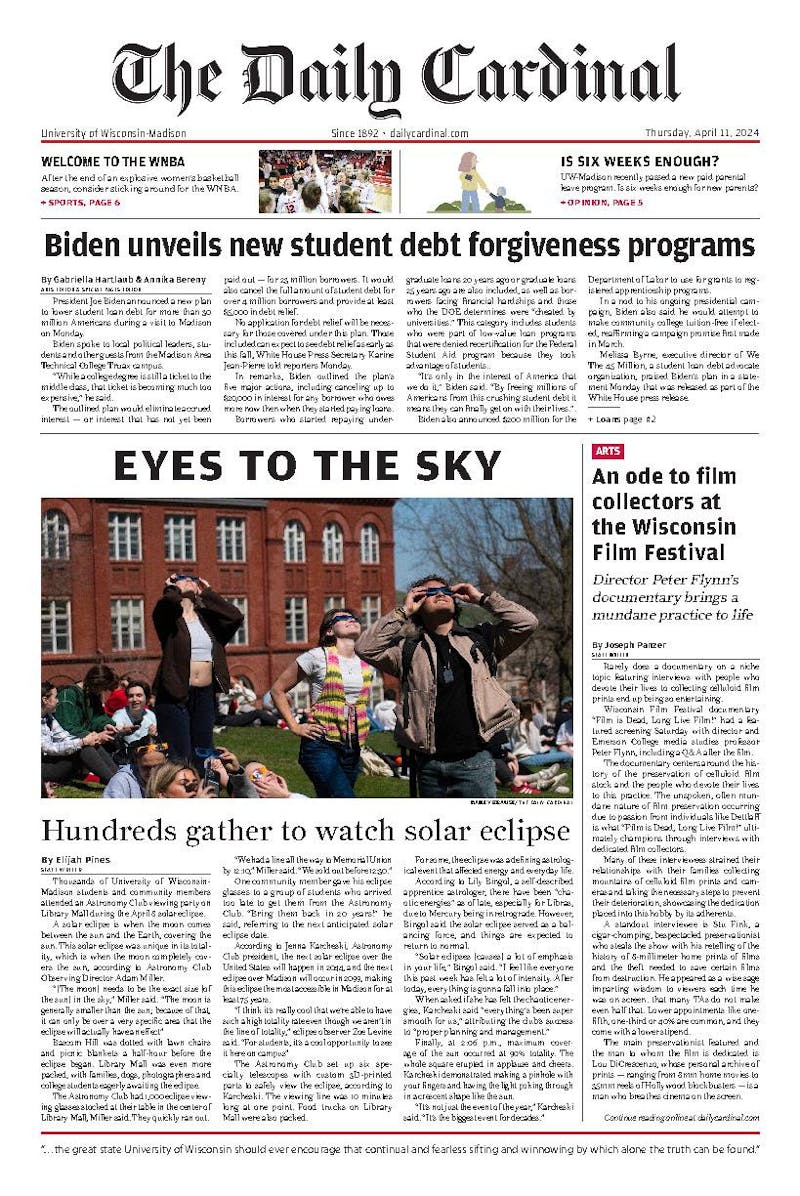For many students, academic misconduct is only an abstract temptation presented once a semester on the pages of a syllabus. Last year, however, the number of academic misconduct cases reported at UW-Madison spiked by nearly 30 cases.
According to the Academic Integrity Annual Report, the number of formally reported cases fluctuates from year to year. It rose from 107 to 177 from 2010-’11 to 2013-’14, only to drop back to 126 by 2015-’16. In 2016-’17, it was back to 152.
The Office of Student Conduct and Community Standards processes all formally reported academic misconduct cases. While plagiarism is the most common form of academic misconduct, the category includes a broad range of student cheating. A formal report means faculty file the case with the OSCCS versus giving an informal warning.
The OSCCS explains the fluctuation in cases as a result of an increase in faculty reporting.
“Though we may have more reports this year, we believe our numbers [of students committing academic misconduct] are consistent from year to year,” said Erin Strange, the OSCCS Student Conduct Coordinator.
She explained that, based on national data, the number of cases of cheating in college has not varied much over time.
Following the split, the general reporting procedure remained the same but provided more online resources, including an online reporting tool meant to ease the process.
Incidentally, these changes correlate with the spike in reported cases in the last school year.
However, Strange acknowledged “there has still been some confusion [among faculty] as far as where reports should go and who is responsible for them.”
Professor Kris Olds, professor Brad Postle
They agreed whether or not a case was reported depended on the level of the student’s transgression and the strength of the evidence in the allegation, not the complexity of the reporting process.
But none of these faculty were aware of system-level changes at the OSCCS, such as the departure from the DoSo or new online resources.
“We have a big campus, and sometimes awareness of resources and new programs and initiatives like this, even despite best intentions, is often uneven,” Olds said. “I didn't know, and now that I know, personally I don't think it would make a difference [in whether or not I would report].”
Almost all responsibility in determining the outcome of an academic misconduct allegation lies with the involved faculty.
Faculty meet with the student to discuss the allegation and then decide if they are guilty or not. They then determine whether or not it warrants a formal report and the appropriate consequence. The OSCCS only becomes involved in extreme cases that could lead to suspension or expulsion.
“I always talk to faculty about how important it is to have a conversation with your students and be clear with them out front about what constitutes cheating in your class,” Wollack said. “There's a great deal of research that shows that faculty and students often have very different definitions.”
The varied understandings of cheating could complicate the professors’ decision to report an unintentional misconduct case.
Olds said the most important thing faculty can do is talk to the students in question and give them the benefit of the doubt.
To help with this, the OSCCS provides resources for faculty to take preventative action against academic misconduct. This can include explanations of plagiarism to include in their syllabi and suggestions to limit cheating on exams.
“An important part of removing [cheating from the campus] is to make the process of reporting less erroneous, and it sounds like that's something very much on campus's radar,” Wollack said.






